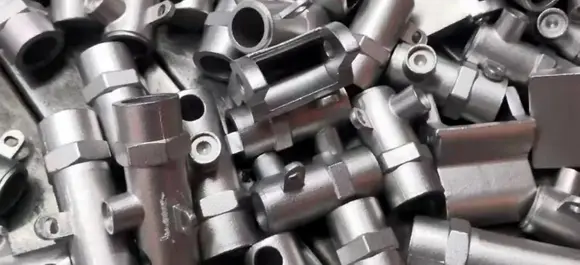Mobile:+86-311-808-126-83
Email:info@ydcastings.com
Innovative Electric Impeller Design for Enhanced Performance and Efficiency in Fluid Systems
Electric Impellers Revolutionizing Fluid Dynamics
In today's rapidly evolving technological landscape, the need for efficient fluid management systems has become paramount across various industries. One innovation that has gained considerable traction is the electric impeller. As a crucial component in pumps and other fluid-moving devices, electric impellers are redefining how we manage fluid dynamics in applications ranging from industrial processes to residential systems.
Understanding Electric Impellers
An electric impeller is a rotor used to increase the pressure and flow of fluids. Unlike traditional mechanical impellers, which often rely on complex belt systems or significant manual inputs, electric impellers are powered directly by electric motors. This integration of electrical components allows for greater efficiency, reduced maintenance, and enhanced control over fluid movement.
The design of electric impellers can vary significantly to adapt to different applications. They can be found in submersible pumps, centrifugal pumps, and many water circulation systems. The versatility of these devices plays a crucial role in ensuring optimal performance across diverse environments.
Advantages of Electric Impellers
1. Energy Efficiency One of the primary benefits of electric impellers is their energy efficiency. They tend to consume less power than their mechanical counterparts, leading to lower operational costs. Improved energy efficiency is especially important in industrial settings, where the cumulative energy savings can result in substantial cost reductions.
2. Reduced Maintenance The simplicity of electric impeller systems minimizes the wear and tear associated with mechanical parts. Without the need for belts or gears, the likelihood of mechanical failure decreases significantly. This reduction in maintenance needs means companies can save time and resources, allowing for increased focus on production and other core business activities.
3. Enhanced Control Electric impellers benefit from advanced control technologies, enabling precise modulation of flow rates and pressure in real-time. Using electronic control systems, operators can adjust settings remotely or automatically based on fluctuating demand. This level of control is not only beneficial for efficiency but also ensures optimal fluid management in sensitive applications.
4. Environmental Benefits With the global push for sustainability, electric impellers present a greener alternative for fluid management. Their lower energy consumption translates into a reduced carbon footprint, making them an attractive choice for environmentally conscious businesses. Furthermore, as technology progresses, electric impellers can easily integrate with renewable energy sources, further enhancing their sustainability profile.
Applications of Electric Impellers
electric impeller

Electric impellers have found applications in a multitude of industries
- Water and Wastewater Management Electric impellers are essential in water treatment plants, where they help in the movement and processing of large volumes of water, ensuring clean supply and treatment of wastewater.
- HVAC Systems In heating, ventilation, and air conditioning (HVAC) systems, electric impellers circulate fluids, maintaining optimal temperatures and air quality in residential and commercial buildings.
- Marine and Transportation Industries Electric impellers also play a key role in naval applications, particularly in electric propulsion systems for ships and submarines, as they provide efficient and quiet operation.
- Medical Equipment In the medical field, electric impellers drive flow in devices such as cardiopulmonary systems and dialysis machines, where reliability and precision are critical for patient care.
The Future of Electric Impellers
As technology continues to advance, the future of electric impellers looks promising. Innovations such as smart sensors, artificial intelligence, and machine learning are beginning to enhance their functionality even further. These technologies can optimize performance by predicting failures, thereby proactively addressing maintenance needs.
Moreover, the rise of electric vehicles (EVs) and renewable energy sources indicates that the demand for advanced electric fluid movement solutions will continue to grow. As industries become increasingly interconnected, electric impellers will undoubtedly play a critical role in shaping the future of fluid dynamics.
Conclusion
Electric impellers represent a significant technological advancement in fluid dynamics, offering numerous advantages over traditional mechanical systems. Their energy efficiency, reduced maintenance, and enhanced control capabilities make them an invaluable asset across various industries. As we move toward a more sustainable future, the importance of electric impellers will undoubtedly continue to escalate, cementing their position as a crucial component in modern fluid management systems.
-
Impeller Technology That Powers Precision in Pump SystemsNewsMay.22,2025
-
Valve Durability Begins with Quality Cast Iron ComponentsNewsMay.22,2025
-
Performance Cooling with Advanced Automobile Water Pump SolutionsNewsMay.22,2025
-
How Motor Housing and Oil Pans Shape Engine PerformanceNewsMay.22,2025
-
How Metal Castings Drive Modern Manufacturing EfficiencyNewsMay.22,2025
-
Exploring the Engineering Behind Valve Body CastingsNewsMay.22,2025











